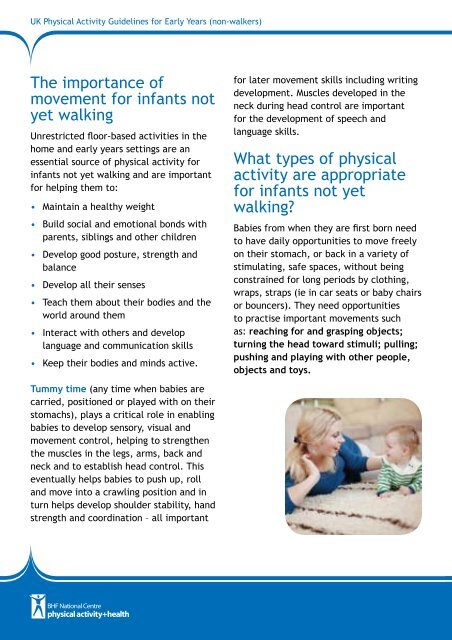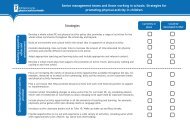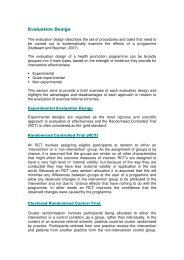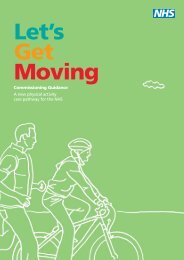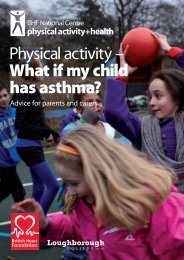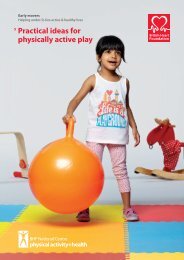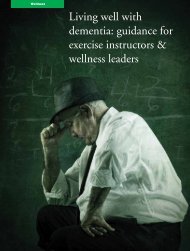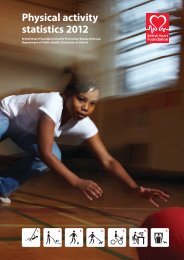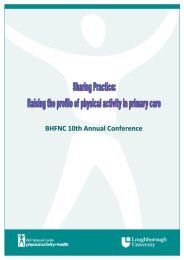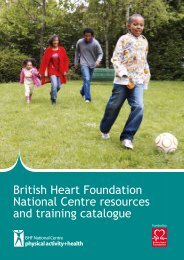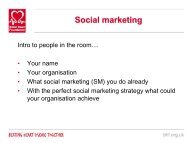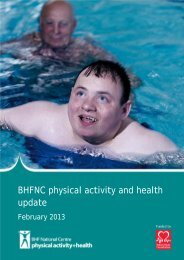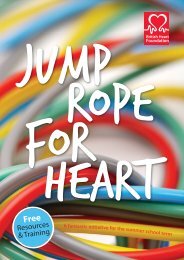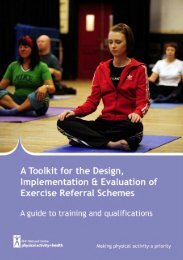UK Physical Activity Guidelines for Early Years - BHF National ...
UK Physical Activity Guidelines for Early Years - BHF National ...
UK Physical Activity Guidelines for Early Years - BHF National ...
Create successful ePaper yourself
Turn your PDF publications into a flip-book with our unique Google optimized e-Paper software.
<strong>UK</strong> <strong>Physical</strong> <strong>Activity</strong> <strong>Guidelines</strong> <strong>for</strong> <strong>Early</strong> <strong>Years</strong> (non-walkers)<br />
The importance of<br />
movement <strong>for</strong> infants not<br />
yet walking<br />
Unrestricted floor-based activities in the<br />
home and early years settings are an<br />
essential source of physical activity <strong>for</strong><br />
infants not yet walking and are important<br />
<strong>for</strong> helping them to:<br />
• Maintain a healthy weight<br />
• Build social and emotional bonds with<br />
parents, siblings and other children<br />
• Develop good posture, strength and<br />
balance<br />
• Develop all their senses<br />
• Teach them about their bodies and the<br />
world around them<br />
• Interact with others and develop<br />
language and communication skills<br />
• Keep their bodies and minds active.<br />
Tummy time (any time when babies are<br />
carried, positioned or played with on their<br />
stomachs), plays a critical role in enabling<br />
babies to develop sensory, visual and<br />
movement control, helping to strengthen<br />
the muscles in the legs, arms, back and<br />
neck and to establish head control. This<br />
eventually helps babies to push up, roll<br />
and move into a crawling position and in<br />
turn helps develop shoulder stability, hand<br />
strength and coordination – all important<br />
<strong>for</strong> later movement skills including writing<br />
development. Muscles developed in the<br />
neck during head control are important<br />
<strong>for</strong> the development of speech and<br />
language skills.<br />
What types of physical<br />
activity are appropriate<br />
<strong>for</strong> infants not yet<br />
walking?<br />
Babies from when they are first born need<br />
to have daily opportunities to move freely<br />
on their stomach, or back in a variety of<br />
stimulating, safe spaces, without being<br />
constrained <strong>for</strong> long periods by clothing,<br />
wraps, straps (ie in car seats or baby chairs<br />
or bouncers). They need opportunities<br />
to practise important movements such<br />
as: reaching <strong>for</strong> and grasping objects;<br />
turning the head toward stimuli; pulling;<br />
pushing and playing with other people,<br />
objects and toys.


